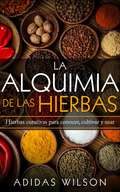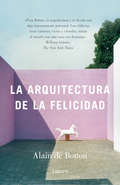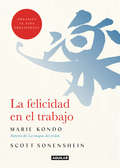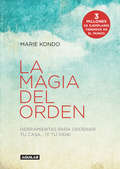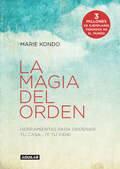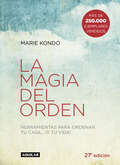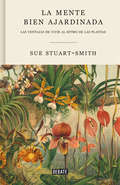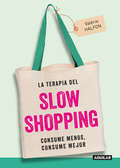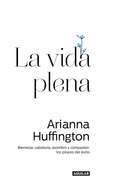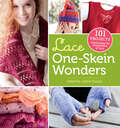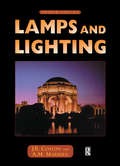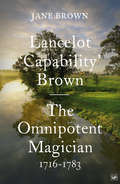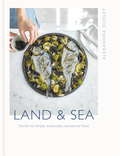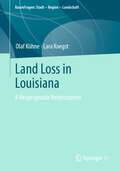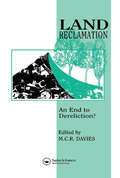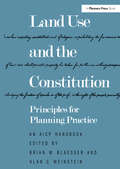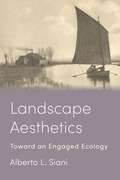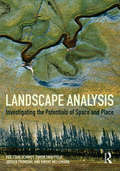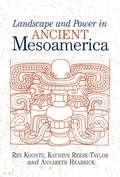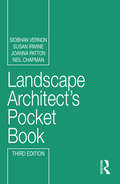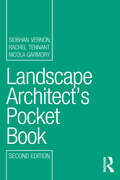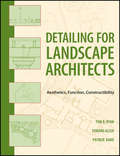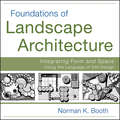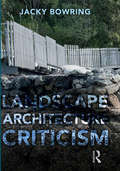- Table View
- List View
La alquimia de las hierbas: hierbas curativas para conocer, cultivar y usar
by Adidas WilsonLas hierbas selectas pueden crecer excepcionalmente bien en interiores o exteriores, en contenedores o en el suelo, todo depende de lo que desea hacer. Si el espacio recibe menos de cinco horas de luz solar al día, es mejor optar por la casa para un acceso más fácil, especialmente para regar y cocinar. Además, esto ayuda a prevenir malezas, plagas o temperaturas fluctuantes. Las semillas son bastante económicas, pero toman más tiempo y requieren más recursos para crecer. Mientras que, por otro lado, las plantas de semillero son de cultivo más rápido, pero solo están disponibles en primavera y verano. Varias herramientas de jardinería son esenciales, puede ser una pala, guantes, ollas, recipientes, prácticamente todo lo que necesita para el trabajo. Y recuerde, algunos suelos fertilizados también son importantes, esto puede generarse naturalmente, o con una solución de compost de uso general de una tienda de jardinería. Para jardinería en contenedores, una mezcla de tierra para macetas empaquetada puede ser de gran ayuda, ya que casi no tendrá que preocuparse por las plagas. Tabla de contenidos Introducción 1. Cultive verduras caseras en su patio trasero 2. Imhotep y el origen de la medicina 3. St. John Wort y la depresión 4. Hierbas en espacios pequeños 5. Remedios para el virus VPH 6. Medicina avanzada de sociedades antiguas 7. Historia de la medicina Ayurveda 8. Medicina china tradicional 9. El cáncer y las hierbas 10. Medicina nativa estadoinidense 11. Hierbas para mejorar el sexo 12. Los aceites de eucalipto y sus beneficios 13. Remedios para las alergias 14. Hierbas para desatascar sus arterias 15. Hierbas naturales nativas estadounidenses 16. Hierbas desintoxicantes 17. Salvia en la medicina herbaria 18. Jardín de hierbas hidropónicas 19. Aumente su inmunidad y combata la infección con hierbas antivirales 20. Tratamientos a base de hierbas y suplementos para la
La arquitectura de la felicidad
by Alain de BottonAlternando ideas y anécdotas sabrosas, Alain de Botton nos ofrece un libro que habla de arquitectura, pero habla sobre todo de lo que nos falta y a menudo nos sobra para llegar a la auténtica felicidad. Si es verdad que somos lo que comemos, también es cierto que somos lo que habitamos, y basta con entrar en una casa para saber no solo qué posee, sino qué esconde y qué desea su dueño. La felicidad depende de la idea que tenemos de nosotros mismos, de la capacidad de casar lo que es con lo que debería ser, y eso se refleja en los objetos que nos rodean. Así es desde tiempos inmemoriales, y Alain de Botton nos lleva de la mano para que revisemos bajo esta óptica un tanto insólita los edificios que han marcado la historia de la arquitectura, desde la Villa Rotonda de Palladio hasta las casas funcionales de Le Corbusier y los rascacielos de Jean Nouvel. Stendhal dijo que la belleza es una promesa de felicidad, y cada cual tiene una idea de belleza de acuerdo con la época y las circunstancias en que le ha tocado vivir. Por eso lo que fue hermoso un tiempo, ahora no puede reproducirse tal cual sin que nos parezca inadecuado. Cierta innovación se impone, pero hay elementos arquitectónicos que se repiten a lo largo de los siglos porque responden a las necesidades hondas de los humanos, y el camino de la felicidad se apoya en ellos: en la simetría, por ejemplo, o en las curvas de ciertos objetos. Donde esté la disposición adecuada de líneas y trazos, estará nuestro hábitat ideal, ese lugar al que nos gusta volver porque ahí reencontramos lo mejor de nosotros mismos. Reseña:«Para Botton, la arquitectura y el diseño son algo intensamente personal. Los edificios tienen carácter, vicios y virtudes, miran al mundo con una cara casi humana.»William Grietes, The New York Times «De Botton tiene una maravillosa habilidad para abordar temas de peso desde puntos de vista amenos y excéntricos.»The Seattle Times «Un libro elegante e [...] inusual, lleno de grandes ideas. [...] Rara vez ha habido un matrimonio más delicado de palabras e imágenes.»The New York Sun «Con originalidad, brío e ingenio, De Botton explica cómo encontramos reflejos de nuestros propios valores en los edificios que construimos.»San Francisco Chronicle «De Botton mantiene la arquitectura a una escala humana.»Los Angeles Times «Alain de Botton ha devuelto a la filosofía su propósito más importante: ayudarnos a vivir mejor».Christina Hardyment, The Independent
La felicidad en el trabajo
by Marie Kondo Scott SonensheinTU LUGAR DE TRABAJO ES MÁS IMPORTANTE QUE NUNCA. APRENDE CON MARIE KONDO A SACARLE EL MÁXIMO PARTIDO Y MEJORAR TU VIDA. El puesto de trabajo es un imán para el desorden y el caos. ¿Quién no se ha sentido agotado por reuniones improductivas, papeles revueltos, interminables correos electrónicos y tareas innecesarias? Todo esto consume tu motivación, limita tus posibilidades de progreso y socava tubienestar. La felicidad en el trabajo aplica el famoso método KonMari al espacio donde ejerces tu actividad laboral. Ofrece historias, consejos prácticos y estrategias para eliminar el desorden en el lugar donde trabajas y disfrutar de la productividad, el éxito y la felicidad que conllevan un entorno laboral y una mente ordenados. Los autores te guían mientras organizas tu vida laboral, ayudándote a desarrollar la confianza, a aumentar el éxito profesional y, por supuesto, a generar alegría.
La magia del orden: Herramientas para ordenar tu casa y tu vida (La magia del orden #Volumen 1)
by Marie KondoTransforma tu hogar en un espacio limpio y ordenado de manera permanente, ¡y sorpréndete de cómo cambia tu vida! ¡Recupera tu vida y aprovecha mejor los espacios de tu casa! Transforma tu hogar en un espacio armónico y libre de desorden con el increíble Método KonMari. La autora, Marie Kondo, ha vendido más de 3 millones de copias de sus libros, que han sido traducidos a más de 30 lenguas y publicado en más de 30 países. En 2015 fue nombrada por la revista Time como una de las 100 personas más influyentes del año. La magia del orden ha conquistado el número 1 en la lista de más vendidos de The New York Times, Los Angeles Times, Publishers Weekly y The Wall Street Journal, entre otras publicaciones. Marie Kondo, con su método inspirador, te ayudará a poner en orden tu casa de una vez por todas. Paso a paso te guiará para que en tu casa sólo tengas las cosas esencialesy tu vida mejore; increíblemente te sentirás más seguro, exitoso y con energía para crear lo que sea. A partir de este momento sólo tendrás que elegir qué conservar y qué desechar. Algunos de los consejos del método KonMari: - Ordena por categoría, no por localización. - No guardes nada en tu armario que no te dé alegría. - Lo que no necesitas tú, tampoco lo necesita nadie de tu familia. - Despídete de cada pieza que tires con gratitud por su servicio dado. - Ordena bien una vez y siempre permanecerá ordenado. - Las maratones de orden tienen efecto rebote. Créate un hábito diario. - Empieza por las cosas más fáciles. - Aprende a doblar bien la ropa y ahorrarás espacio. - No compres más cajas ni materiales de almacenaje pequeño. No lo necesitas La crítica ha opinado: "Marie Kondo se define como una gurú del orden, una princesa guerrera que lucha contra el caos. Algo que lleva haciendo desde los cinco años" The Times "Marie Kondo es una mujer con una única misión: limpiar el mundo habitación por habitación. Sus libros se han convertido en un fenómeno de ventas en Japón, su país natal. Su método es una actitud ante la vida, una filosofía del orden. Kondo sostiene que son muchos los efectos positivos que podemos tener en nuestras vidas gracias al orden: suerte, amor y éxito, entre otros" The Sunday Times
La magia del orden: Herramientas para ordenar tu casa... y tu vida (La magia del orden #Volumen 1)
by Marie KondoTransforma tu hogar en un espacio limpio y ordenado de manera permanente, ¡y sorpréndete de cómo cambia tu vida! Marie Kondo, la experta en orden japonesa, te ayudará a acomodar tus espacios de una vez por todas con su sencillo método KonMari. La clave para mantener el orden exitosamente está en acomodar los objetos de tu casa, habitación, apartamento, estudio u oficina en forma correcta, manteniendo solo lo que realmente amas y limpiándolo todo a la vez.Este método increíblemente fácil no solo transformará tu espacio, también te cambiará a ti. Te sentirás más seguro, exitoso y motivado para crear la vida que quieres. ** La magia del orden ha sido traducida a cuarenta idiomas ha vendido más de 12.000.000 de ejemplares todo el mundo. ** Se ha traducido a más de 24 lenguas y publicado en más de 30 países.** Ha conquistado el número 1 en la lista de más vendidos de The New York Times, Los Angeles Times, Publishers Weekly y The Wall Street Journal, entre otras publicaciones. Reseñas:«Nunca poner a punto tu casa tuvo tanto que aportarte [...] No tardarás en descubrir que has vivido años rodeada de cosas que no necesitas».Cosmopolitan «Un método de organización con el que no solo transformarás un espacio sino que, también, te cambiará a ti».El Mundo «Si buscas soluciones para ordenar tu casa, aquí tienes el manual perfecto».ELLE«Marie Kondo se define como una gurú del orden, una princesa guerrera que lucha contra el caos. Algo que lleva haciendo desde los cincos años».The Times «Marie Kondo es una sola mujer con una única misión: limpiar el mundo habitación por habitación. Sus libros se han convertido en un fenómeno de ventas en Japón, su país natal. Su método es una actitud ante la vida, una filosofía del orden. Kondo sostiene que son muchos los efectos positivos que podemos tener en nuestras vidas gracias al orden: suerte, amor y éxito, entre otros».The Sunday Times «¿El desorden preside tu vida? Sigue las reglas del método Marie Kondo, la reina del orden, y sé feliz».You.co En los blogs...«Sin duda es un libro que se lee en un momento, que engancha porque cuenta con ejemplos que ha vivido Marie Kondo con clientes... Es un libro que te ayuda a darte cuenta de que es mejor tener poco que te guste y te haga feliz, que mucho que no uses. Fíjate en tu ropa, estoy segura que aunque tengas el armario lleno, siempre terminas vistiendo igual. Un libro cuyo enfoque me ha gustado, aunque hay que adaptarlo a cada persona».Blog Historias contadas
La magia del orden: Herramientas para ordenar tu casa... y tu vida (La magia del orden #Volumen 1)
by Marie KondoTransforma tu hogar en un espacio limpio y ordenado de manera permanente, ¡y sorpréndete de cómo cambia tu vida! Marie Kondo, la experta en orden japonesa, te ayudará a acomodar tus espacios de una vez por todas con su sencillo método KonMari. La clave para mantener el orden exitosamente está en acomodar los objetos de tu casa, habitación, apartamento, estudio u oficina en forma correcta, manteniendo solo lo que realmente amas y limpiándolo todo a la vez.Este método increíblemente fácil no solo transformará tu espacio, también te cambiará a ti. Te sentirás más seguro, exitoso y motivado para crear la vida que quieres. ** La magia del orden ha sido traducida a cuarenta idiomas ha vendido más de 12.000.000 de ejemplares todo el mundo. ** Se ha traducido a más de 24 lenguas y publicado en más de 30 países.** Ha conquistado el número 1 en la lista de más vendidos de The New York Times, Los Angeles Times, Publishers Weekly y The Wall Street Journal, entre otras publicaciones. Reseñas:«Nunca poner a punto tu casa tuvo tanto que aportarte [...] No tardarás en descubrir que has vivido años rodeada de cosas que no necesitas».Cosmopolitan «Un método de organización con el que no solo transformarás un espacio sino que, también, te cambiará a ti».El Mundo «Si buscas soluciones para ordenar tu casa, aquí tienes el manual perfecto».ELLE«Marie Kondo se define como una gurú del orden, una princesa guerrera que lucha contra el caos. Algo que lleva haciendo desde los cincos años».The Times «Marie Kondo es una sola mujer con una única misión: limpiar el mundo habitación por habitación. Sus libros se han convertido en un fenómeno de ventas en Japón, su país natal. Su método es una actitud ante la vida, una filosofía del orden. Kondo sostiene que son muchos los efectos positivos que podemos tener en nuestras vidas gracias al orden: suerte, amor y éxito, entre otros».The Sunday Times «¿El desorden preside tu vida? Sigue las reglas del método Marie Kondo, la reina del orden, y sé feliz».You.co En los blogs...«Sin duda es un libro que se lee en un momento, que engancha porque cuenta con ejemplos que ha vivido Marie Kondo con clientes... Es un libro que te ayuda a darte cuenta de que es mejor tener poco que te guste y te haga feliz, que mucho que no uses. Fíjate en tu ropa, estoy segura que aunque tengas el armario lleno, siempre terminas vistiendo igual. Un libro cuyo enfoque me ha gustado, aunque hay que adaptarlo a cada persona».Blog Historias contadas
La mente bien ajardinada: Las ventajas de vivir al ritmo de las plantas
by Sue Stuart-SmithUna maravillosa exploración del jardín como lugar mental y de los poderes de la naturaleza. Un jardín es un refugio ideal para huir del ajetreo del mundo y conectar con la naturaleza. Sin embargo, sabemos muy poco sobre los verdaderos beneficios de la jardinería. Investigaciones recientes demuestran que, cuando la practican, los presos tienen menos probabilidades de reincidir, los jóvenes en riesgo de exclusión tienden a perseverar en el sistema educativo y los ancianos viven más y mejor. Repleto de curiosidades científicas y emocionantes historias humanas, La mente bien ajardinada es una poderosa combinación de neurociencia, literatura, historia y psicoanálisis que indaga en el secreto que muchos jardineros conocen desde siempre: el contacto con la naturaleza puede transformar radicalmente nuestra salud y nuestra autoestima. Sue Stuart-Smith, distinguida psiquiatra, apasionada jardinera y brillante narradora, entreteje ejemplos como el papel clave de la horticultura para su abuelo tras la Primera Guerra Mundial, la obsesión de Freud por las flores y curiosas historias clínicas de sus propios pacientes. Con todo ello, nos convence de hasta qué punto puede influirnos la conexión con los ciclos de la naturaleza (en los que, tras la descomposición, brota de nuevo la vida), de las muchas formas en que la mente y el jardín interactúan y de la idea de que hundir nuestras manos en la tierra puede ser un modo de cuidarnos a nosotros mismos. La crítica ha dicho:«Sin duda el libro sobre jardinería más original de todos los tiempos.»The Sunday Times «Una investigación elegante y completa que muestra lo enriquecedor que es para la mente cambiar la pantalla por el verde. Nos ha hecho un gran favor al escribir este libro.»The Observer «Bellamente escrito y repleto de revelaciones sobre el placer y los beneficios del cuidado de las plantas. Inspirador.»The Guardian «Mezcla de horticultura, literatura e historia, es un libro edificante, alimento para el alma.»The Times «Una fascinante asociación entre la ciencia de la psiquiatría y el antiguo arte de la jardinería.»Financial Times «Un logro impresionante. Este sí que es un libro optimista.»The Spectator «Convincente y conmovedor, muestra hasta qué punto nuestro bienestar depende del contacto con la jardinería y la naturaleza. Léanlo.»Edmund De Waal «El libro más inteligente que he leído en muchos años. Un relato convincente de cómo las mentes atribuladas pueden reconectarse consigo mismas y recuperar la confianza a través de la naturaleza. Muy recomendable.»Stephen Fry
La terapia del Slow Shopping: Consume menos, consume mejor
by Valérie HalfonDirigido tanto a principiantes como a personas experimentadas, este libro permite descubrir los beneficios materiales y espirituales de una gestión adecuada del presupuesto. Replantéate la forma en que consumes y podrás ser más feliz y más libre. <P><P>Descubre todo lo que puedes ganar si te administras mejor. La forma en que gastamos, reflejo de nuestra personalidad, es reveladora de nuestros gustos, de nuestros deseos, pero también de nuestros traumas y nuestros miedos. <P>Pensar en ello nos da una idea de nosotros mismos y puede ser una verdadera terapia. Valérie Halfon nos invita a tomar conciencia de nuestras necesidades reales y nuestras disfunciones, a consumir de manera diferente y sanear nuestras finanzas, a enfocarnos en lo esencial y ganar en libertad. <P>Su método tiene un enfoque único, creativo y estructurador, ilustrado por numerosos ejemplos de su experiencia como coach, que nos permite recuperar el control de nuestras vidas y cumplir nuestros deseos. <P>¡Aprende a comprar y disfruta al ahorrar!
La vida plena
by Arianna HuffingtonEn La vida plena Arianna Huffington argumenta de forma apasionada y persuasiva la necesidad de redefinir lo que significa tener éxito en el mundo actual.Mientras el mundo nos ofrece señales luminosas e insistentes que nos incitan a ganar más dinero y escalar más alto en la pirámide, apenas existen aquellas que nos recuerden que debemos estar conectados a la esencia de lo que somos, que hemos de cuidarnos a lo largo del camino, que debemos relacionarnos los unos con los otros, que tenemos que parar y asombrarnos, y conectar con ese lugar donde todo es posible.Buscad vuestro punto de apoyo, vuestro lugar de sabiduría, paz y fuerza. Y desde ese espacio, rehaced el mundo a vuestro gusto, de acuerdo con vuestra definición de éxito, para que podamos desarrollarnos y vivir nuestra vida con más gracia, más alegría, más compasión, más gratitud, y sí, más amor. ¡Hacia delante, hacia arriba, y hacia el interior!Arianna Huffington, de La vida plenaReseña:«En La vida plena Arianna nos invita a conectar con quienes somos en realidad para que de este modo podamos vivir bajo nuestros propios designios. Desde la importancia de dormir hasta la necesitad de escuchar nuestra voz interior como vías para gestionar las diferentes crisis que a diario experimentamos, este libro traza para cada uno de nosotros un sendero que nos invita a mirar en nuestro interior y a convertir nuestra vida en una experiencia auténtica y plena».Sheryl Sandberg, Facebook COO y autora de Lean In
Lace One-Skein Wonders®: 101 Projects Celebrating the Possibilities of Lace (One-Skein Wonders)
by Judith DurantStretch a single skein of yarn into a complete knitted lace project. Knitters of all levels will be thrilled by the dizzying array of lace wonders that can be created with such a small fiber sample. Try your hand at an heirloom-quality lace shawl, light and airy curtains, cozy baby blankets, a dainty child’s dress, and much more. With clear instructions for 101 projects contributed by designers and knitters from around the world, you’ll be inspired to pull out your needles and get knitting.
Lamps and Lighting
by M.A. CaylessThis book is a comprehensive guide to the theory and practice of lighting. Covering the physics of light production, light sources, circuits and a wide variety of lighting applications, it is both suitable as a detailed textbook and as thoroughly practical guide for practising lighting engineers. This fourth edition of Lamps and Lighting has been completely updated with new chapters on the latest lamp technology and applications. The editors ahve called upon a wide range of expertise and as a result many sections have been broadened to include both European and US practice.The book begins with a description of the fundamentals of light, vision, colour and measurement. Part II, the main section of the book, deals with lamps and control equipment and includes descriptions of all lamp types in use today. Part III on lighting covers both interior and exterior applications.
Lancelot 'Capability' Brown, 1716-1783: The Omnipotent Magician
by Jane BrownLancelot Brown changed the face of eighteenth-century England, designing country estates and mansions, moving hills and making flowing lakes and serpentine rivers, a magical world of green. This English landscape style spread across Europe and the world. At home, it proved so pleasing that Brown's influence spread into the lowland landscape at large, and into landscape painting. He stands behind our vision, and fantasy, of rural England. In this vivid, lively biography, based on detailed research, Jane Brown paints an unforgettable picture of the man, his work, his happy domestic life, and his crowded world. She follows the life of the jovial yet elusive Mr Brown, from his childhood and apprenticeship in rural Northumberland, through his formative years at Stowe, the most famous garden of the day. His innovative ideas, and his affable and generous nature, led to a meteoric rise to a Royal Appointment in 1764 and his clients and friends ranged from statesmen like the elder Pitt to artists and actors like David Garrick. Riding constantly across England, Brown never ceased working until he collapsed and died in February 1783 after visiting one of his oldest clients. He was a practical man but also a visionary, always willing to try something new. As this beautifully illustrated biography shows, Brown filled England with enchantment - follies, cascades, lakes, bridges, ornaments, monuments, meadows and woods - creating views that still delight us today.
Land & Sea: Secrets to simple, sustainable, sensational food
by Alexandra DudleyA celebration of real food and wholesome ingredients, Land and Sea brings sustainable eating to the table in true flavour and style. With advice on using the whole ingredient (no matter what it is); how you can make the most of leftovers; and how to be creative with herbs and spices, these recipes show you how to inject every mealtime with flavour and goodness.Inspired by her Dutch and German roots, Alexandra's storybook style recipes include family breakfasts of sweet-spiced, apple puffed pancakes - a traditional 'Dutch Baby' - warming lunches such as Hake, Prawn and Lemongrass Curry, and comforting dinners to share like Spatchcocked Persian-Spiced Peanut Butter Chicken. And with a whole chapter on how to make vegetable 'king', you'll also find lots of ideas to make the most from your bounty, such as Caramelised Carrot Tarte Tatin and Shepherdless Pie.Including beautiful photography and stunningly designed, these recipes will show you how to celebrate all that Land and Sea has to offer, to the full.
Land Loss in Louisiana: A Neopragmatic Redescription (RaumFragen: Stadt – Region – Landschaft)
by Olaf Kühne Lara KoegstThis book is oriented on testing and developing the neopragmatic approach of horizontal geographies, in which we follow approaches of natural sciences, social sciences, and cultural studies. Regional focus is thereby put on a rapidly changing elemental space and its social representations, characterized by unstable and not well-defined hybridities: coastal Louisiana. This region is highly dynamic: the Mississippi River in particular, with its extensive sediments, has shifted the coastal fringe of present-day Louisiana into the Gulf of Mexico. This land gain is contrasted by natural processes, but also by processes resultant of human intervention which cause marine encroachment. A complex interplay of different aspects is directly and indirectly leading to coastal land loss which makes the question of how to describe emerging hybrid spaces virulent and highlights the limits of a positivist understanding of boundaries that is also physically geographical. In the neopragmatic tradition, positivist research findings will be framed in social constructivist terms and supplemented by phenomenological approaches to Louisiana's coastal space, thus suggesting the need for and potentials of horizontal geographic integration of different theoretical and methodological approaches as well as researcher perspectives and data bases.
Land Reclamation: An end to dereliction?
by M. C. R. DaviesPapers presented at the Third International Conference on Land Reclamation: An End to Dereliction?, held at the University of Wales College of Cardiff, Cardiff, UK 2-5 July 1991.
Land Use and the Constitution: Principles for Planning Practice (An\aicp Handbook Ser.)
by Douglas W. Kmiec Norman Williams Brian W. Blaesser Clyde W. Forrest Daniel R. Mandelker Alan C. WeinsteinThis practical handbook explains eight constitutional principles and applies them to real-world planning situations. These statements of principles reflect consensus opinions, but the book also discusses points of dissent. It includes detailed summaries of more than fifty U.S. Supreme Court cases affecting land-use planning, along with a comprehensive table of contents, a cross-referenced index, three matricies that relate sections of the book to one another, and a summary of constitutional principles that relates them to land-use planning techniques. All of these features make it easy to locate key constitutional principles quickly. This book is the result of a 1987 symposium that brought together two dozen leading practitioners and scholars in the fields of planning and law.
Landscape Aesthetics: Toward an Engaged Ecology
by Alberto L. SianiThe notion of landscape typically seems innocuous, associated with leisure and contemplation. Likewise, aesthetics is often seen as apolitical, a matter of subjective tastes and preferences. This book challenges the common understanding of these categories as disengaged and demonstrates how uniting landscape studies and philosophical aesthetics opens new ways of addressing both the environmental crisis and the crisis of the humanities.Alberto L. Siani argues that the concept of landscape helps us overcome deeply ingrained oppositions, such as nature and culture, spirit and flesh, or the environment and the human. Landscape represents the intersection of these categories and therefore provides a helpful vantage point on contemporary predicaments that cannot be understood within dualistic frameworks. An engaged aesthetics shows that landscapes are not simply ways of seeing the world but ways of being in the world, offering practical guidance for inhabiting places ethically. Landscape Aesthetics sheds new light on issues spanning art and its interpretation, environmentalism, temporality, lived spaces, justice, education, and interdisciplinarity. Bringing together a wide range of sources across philosophy and other disciplines as well as personal experience, Siani reveals the key role of landscape and aesthetics in responding to the pressing crises we face today.
Landscape Analysis: Investigating the potentials of space and place
by Simon Swaffield Jorgen Primdahl Per Stahlschmidt Vibeke NellemannA key aspect of town planning, landscape planning and landscape architecture is to identify and then use the distinctive features and characteristics of space, place and landscape to achieve environmental quality. Landscape Analysis provides an introduction to the field both in theory and in practice. A wide range of methods and techniques for landscape analysis is illustrated by urban and rural examples from many countries. Analysing landscapes within a planning context requires both skill and insights. Drawing upon numerous concrete examples, together with an examination of some theoretical concepts, this book guides the reader through a wide range of different approaches and techniques of landscape analysis that may be applied at different scales, from elementary site analysis to historical and regional studies. This is an essential book for students and graduate practitioners working in landscape architecture, planning and architecture.
Landscape And Power In Ancient Mesoamerica
by Annabeth Headrick Kathryn Reese-Taylor Rex KoontzFrom the early cities in the second millennium BC to the Aztec capital of Tenochtitlan on the eve of the Spanish conquest, Ancient Mesoamericans created landscapes full of meaning and power in the center of their urban spaces. The sixteenth century description of Tenochtitlan by Bernal Diaz del Castillo and the archaeological remnants of Teotihuacan attest to the power and centrality of these urban configurations in Ancient Mesoamerican history. In "Landscape and Power in Ancient Mesoamerica," Rex Koontz, Kathryn Reese-Taylor, and Annabeth Headrick explore the cultural logic that structured and generated these centers. Through case studies of specific urban spaces and their meanings, the authors examine the general principles by which the Ancient Mesoamericans created meaningful urban space. In a profoundly interdisciplinary exchange involving both archaeologists and art historians, this volume connects the symbolism of those landscapes, the performances that activated this symbolism, and the cultural poetics of these ensembles.
Landscape Architect's Pocket Book (Routledge Pocket Books)
by Neil Chapman Siobhan Vernon Susan Irwine Joanna PattonThis third edition of the bestselling Landscape Architect’s Pocket Book, written by leading practitioners, incorporates updates and revisions to environmental and building regulations, contracts, and a range of design guidelines including materials, SuDS, environmental impact, and landscape character assessment. The book is an indispensable tool for all landscape architects, providing a timesaving guide and first point of reference to everyday topics, both out on site and in the office. The pocket book covers all major subjects, including hard and soft landscaping, national guidelines and standards, and key planning policy and legislation. Providing concise, easy-to-read reference material, useful calculations, and instant access to a wide range of topics, it is an essential resource for landscape architects, construction industry professionals, and students.
Landscape Architect's Pocket Book (Routledge Pocket Books)
by Rachel Tennant Nicola Garmory Siobhan VernonAn indispensable tool for all landscape architects, this time-saving guide answers the most frequently asked questions in one pocket-sized volume. It is a concise, easy-to-read reference that gives instant access to a wide range of information needed on a daily basis, both out on site and in the office.Covering all the major topics, including hard landscaping, soft landscaping as well as planning and legislation, the pocket book also includes a handy glossary of important terms, useful calculations and helpful contacts. Not only an essential tool for everyday queries on British standards and procedures, this is a first point of reference for those seeking more extensive, supplementary sources of information, including websites and further publications. This new edition incorporates updates and revisions from key planning and environmental legislation, guidelines and national standards.
Landscape Architectural Detailing
by Thomas R. Ryan Edward Allen Patrick J. RandThe new industry standard on landscape architectural detailing Detailing for Landscape Architects takes the reader on an educational journey across three major areas of landscape architectural detailing-aesthetics, function, and constructibility-to demonstrate how powerful design patterns can transform thematic ideas into awe-inspiring built realities. Richly illustrated examples accompany concise discussions of a varied blend of landscape design/detailing issues such as water movement, soil environments, articulating structures and construction assemblies, life cycle costing, sustainability, health and safety, and more. This book approaches the subject of detailing in a systematic manner, and provides a balanced framework for design and workmanship that conveys the essence of the built landscape. Detailing for Landscape Architects shows how details can: Reinforce design ideas through the continuity and discontinuity of patterns Actively contribute to the overall form or geometry of the design Be designed to be durable and flexible while enhancing the entire design Gracefully accommodate the natural growth and change of plant materials Anticipate maintenance needs to minimize future disruptions Maximize their cost effectiveness through understanding their function while designing to meet those functions Including chapters that apply detail patterns to the design of an urban plaza, a roof deck, and a residence, Detailing for Landscape Architects offers guidance on solving specific technical requirements, while preserving and enhancing the visual qualities that celebrate innovation, and carry forth a timeless quality of building.
Landscape Architecture
by Norman K. BoothA visually engaging introduction to landscape architectural design Landscape architectural design seeks to create environments that accommodate users' varying lifestyles and needs, incorporate cultural heritage, promote sustainability, and integrate functional requirements for optimal enjoyment. Foundations of Landscape Architecture introduces the foundational concepts needed to effectively integrate space and form in landscape design. With over five hundred hand-rendered and digital drawings, as well as photographs, Foundations of Landscape Architecture illustrates the importance of spatial language. It introduces concepts, typologies, and rudimentary principles of form and space. Including designs for projects such as parks, campuses, and memorials, this text provides the core concepts necessary for designers to shape functional landscapes. Additionally, chapters discuss organizational and spatial design structures based on orthogonal forms, angular forms, and circular forms. Helping students, professionals, and lifelong learners alike, Foundations of Landscape Arch-itecture delivers a concrete understanding of landscape architectural design to inspire one's imagination for countless types of projects.
Landscape Architecture Criticism
by Jacky BowringLandscape Architecture Criticism offers techniques, perspectives and theories which relate to landscape architecture, a field very different from the more well-known domains of art and architectural criticism. Throughout the book, Bowring delves into questions such as, how do we know if built or unbuilt works of landscape architecture are successful? What strategies are used to measure the success or failure, and by whom? Does design criticism only come in written form? It brings together diverse perspectives on criticism in landscape architecture, establishing a substantial point of reference for approaching design critique, exploring how criticism developed within the discipline. Beginning with an introductory overview to set the framework, the book then moves on to historical perspectives, the purpose of critique, theoretical positions ranging from aesthetics, to politics and experience, unbuilt projects, techniques, and communication. Written for professionals and academics, as well as for students and instructors in landscape architecture, it includes strategies, diagrams, matrices, and full colour illustrations to prompt discussion and provide a basis for exploring design critique.
Landscape Architecture Documentation Standards: Principles, Guidelines And Best Practices
by Design WorkshopAchieve better execution with the documentation standards behind an industry-leading firm Construction Documentation Standards and Best Practices for Landscape Architectural Design offers guidelines, methods, and techniques for creating more robust project documents. Developed and authored by one of the world's leading landscape architectural firms, this material has been field tested by Design Workshop's ten offices and 150 designers to ensure completeness, practicality, and effectiveness. The book provides an overview of the entire design and construction process in the context of actual documentation, with best practice standards for design document content, format, and graphics. Readers learn how to apply these practices to serve the specific needs of different projects, gaining a comprehensive understanding of how complete documentation better serves the project as a whole. Good documentation leads to good execution, which leads to better performance from the perspectives of durability, safety, and user enjoyment. This book presents a set of standards that serve as a roadmap of the design process, helping designers provide the complete documentation that the most highly executed projects require. Discover how documentation ties into project performance Learn the best practices for documenting every stage of the process Study actual project documents serving various project needs Gain documentation insights from one of the world's top firms Design Workshop has been an industry leader since 1969, with projects ranging from resorts, to wildlife refuges, to county master plans. The value of their insight is proven by the continued high performance of their projects across the U. S. and beyond, and this book contains the standards, techniques, and actual documentation behind this success. Better outcomes require better execution, which starts with the documentation standards presented in Construction Documentation Standards and Best Practices for Landscape Architectural Design.
